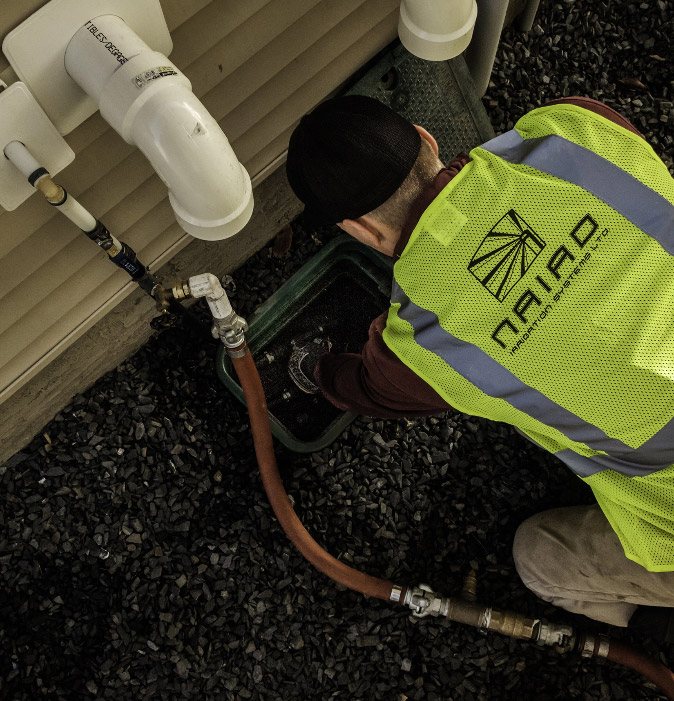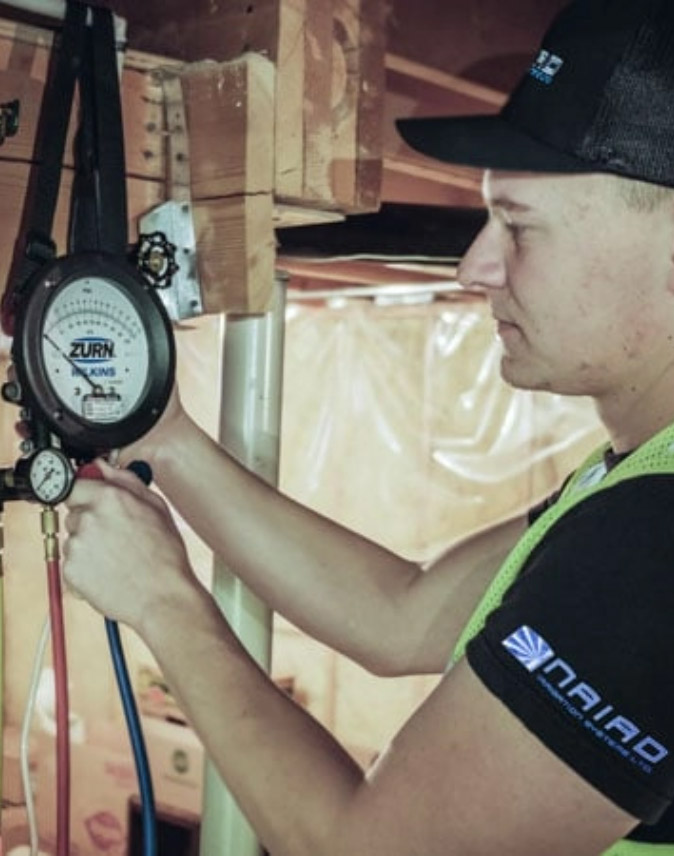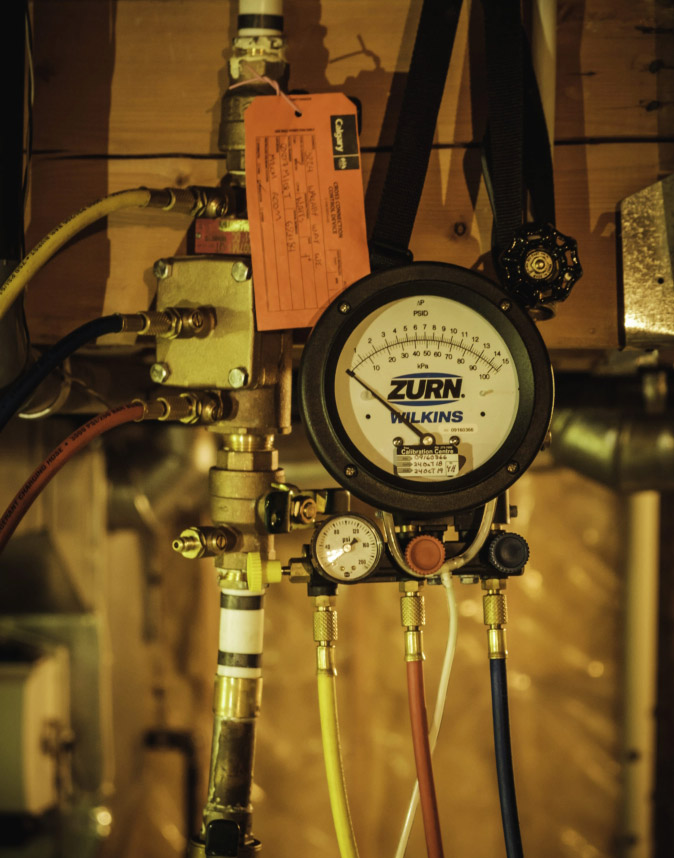Protect your potable water supply from backflow contamination. Get tested annually by an American Water Works Association-certified professional.

Watch: Cross Connection Testing
Such connections usually require a “cross-connection device” that prevents water from flowing back to its source. For sprinkler systems, cross-connection devices are necessary to protect your municipality’s drinking water supply from contaminants such as fertilizers or pesticides.
Backflow can be caused by a drop in pressure at the potable water source (siphonage) or an increase in pressure in an external system (backpressure). In either case, backflow usually goes unnoticed. By testing your device each year, you can rest assured that it protects your water supply.
Book Service

Before activating your underground sprinkler system this spring, you must have your cross-connection device tested by a certified tester registered with the City of Calgary or your local municipality.
Book ServiceA common example is a hose connected to a garden tap, potentially linked to an irrigation mainline. This setup requires a protective cross-connection device.
It connects external systems like irrigation to the potable water supply, requiring devices to prevent backflow.
Backflow can introduce contaminants like fertilizers into the drinking water supply, posing health risks.
Failure to test can lead to undetected malfunctions, risking contamination, possible fines and non-compliance with health regulations.
Failing devices must be repaired or replaced to ensure the water supply remains protected from contamination.
They are required annually wherever there is a cross connection that could potentially contaminate the water supply. Underground sprinkler systems are a prime example, as dirt and chemicals such as herbicides or fertilizers can enter the system unnoticed over time without causing other issues.
The City of Calgary requires you to have your sprinkler system’s cross-connection tested before the system is activated each year.
No – Homeowners are highly advised to hire professionals like Naiad for cross-connection testing to ensure it meets regulatory standards and is effectively executed.